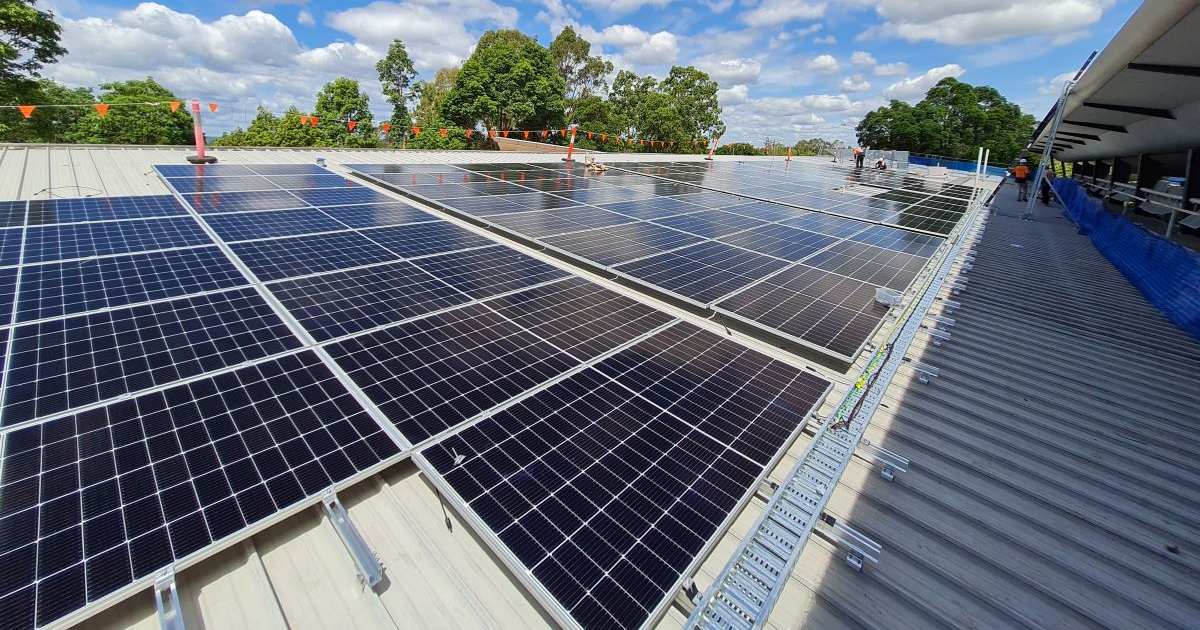Griffith University is continuing on its sustainability journey with the installation of solar panels on the rooftops of five Logan campus buildings – and there will be more to come.
This significant step is part of the university’s broader commitment to achieving 100% renewable power by 2029, in line with the institution’s Strategic Plan 2020-2025 that seeks to halve emissions by 2030 and reduce them to net- zero by 2050.
First Stage Of Solar Panel Rollout
The installation process has already begun, with the first batch of solar panels installed on the Central Chiller Plant’s roof. Over the coming months, work will continue on the remaining four buildings. According to William Pettit, Renewables Project Electrical Engineer, the Logan campus will boast approximately one megawatt (MW) of solar panels once the rollout is complete.
Impressive Results Expected
The solar panels are expected to generate a remarkable 73% of the Logan campus’s electricity requirements, significantly reducing the university’s carbon emissions by 1,174 tonnes of carbon dioxide per year. This achievement will mark the first stage of a university-wide rollout, which will eventually see an additional four megawatts of solar panel capacity installed across all Griffith University campuses – the others being Gold Coast, Mt Gravatt, Nathan and South Bank.
Prior to this, close to 900kW of renewables had already been installed across Griffith campuses, in the form of solar panel and wind turbine installations
Columboola Solar Farm Partnership
This solar panel initiative is just one component of Griffith University’s overall commitment to green energy. Via a deal through CS Energy, the university is also receiving supply from Columboola Solar Farm near Miles in Queensland’s Western Downs region, which is providing 50% of its energy needs.
Reducing The University’s Carbon Footprint
Griffith University’s Chief Operating Officer, Peter Bryant, highlighted the importance of this new wave of on-site renewable generation investment. The university consumes about 60 *million* kilowatt-hours of electricity annually he said, contributing to around 70% of its total carbon footprint.
“It’s a win-win for Griffith and the planet,” said Mr. Bryant.
Electricity consumption in universities can be quite mind-boggling. The 60 million kilowatt-hours consumed each year (60,000 megawatt-hours) is equivalent to the annual consumption of around 10,900 Queensland households.
Once all the panels are in place, the Logan campus solar power systems will be in very good company. The campus is situated in the heart of Meadowbrook, where solar panels are already a common sight on rooftops of homes and buildings large and small. Just in terms of small-scale solar; i.e., systems less than 100kW capacity, more than 1,688 small-scale systems had been installed in Meadowbrook’s postcode (4131 – which also incorporates Loganlea), boasting a collective capacity of 9,133 kW as at February 28, 2023.
Based in one of Australia’s fastest-growing cities, the Logan campus has a relatively small population of students; around 2,000. What it may lack in student numbers it more than makes up for in its renewable energy and sustainability aspirations.


 RSS - Posts
RSS - Posts



Speak Your Mind